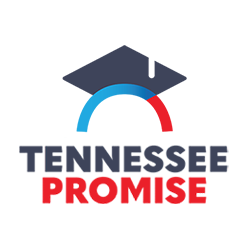- Agriculture-Business
- Biology
- Chemistry
- Computer Science
- Engineering
- Environmental Science
- Geosciences
- Joseph C. Watlington Math & Science Scholarship
- Mathematics
- Physics
- Pre-Clinical Laboratory Sciences
- Pre-Dental Hygiene
- Pre-Health Professions
- Pre-Nursing
- Pre-Occupational Therapy
- Pre-Physical Therapy
- Science Research
- Veterinary
- Parris Powers Memorial Arboretum
- Request Program Information
University Parallel, A.S. - Computer Science (TTP)
Degree: Associate of Science
Major: University Parallel
Area of Emphasis: Computer Science
Department: Science
CIP Code: (16) 24.0101.01
For more information, visit the Computer Science webpage or contact the Math and Science division at 615.230.3261 or mathscience@volstate.edu.
Computer Science spans the broad range from theory through programming to cutting-edge development of computing solutions. Computer science offers a foundation that permits graduates to adapt to new technologies and new ideas. The work of computer scientists falls into three categories: 1.) designing and building software; 2.) developing effective ways to solve computing problems such as storing information in databases, sending data over networks or providing new approaches to security problems; and 3.) devising new and better ways of using computers and addressing particular challenges in areas such as robotics, computer vision, or digital forensics. According to the Bureau of Labor Statistics reports, more IT jobs are available in the United States today than at the height of the dot.com bubble and are expected to be among the fastest-growing occupations over the next decade. Computer science requires solid preparation and study in mathematics.
Transfer Options
Tennessee Transfer Pathways (TTPs) are advising tools designed to help community college students plan for transferring to a Tennessee public university or select regionally accredited, non-profit, Tennessee private colleges and universities to complete their baccalaureate degree. The TTPs also constitute an agreement between community colleges and four-year colleges/universities confirming that community college courses meet major preparation requirements. For transfer to other four-year institutions, contact an advisor at the senior institution. Note: Due to the transferability to a four-year institution, there are to be no course substitutions where a specific course is required in the TTP curriculum guide.
Graduation Requirement
- All students graduating with a degree from VSCC are required to take the E-Proficiency Profile (EPP) to meet graduation requirements. More information can be found on the Graduation Exit Exam webpage.
General Education Core Requirements - Credits (42)
- COMM 2025 - ^Fundamentals of Communication Credits: (3)
OR COMM 2045 - ^Public Speaking Credits: (3)
- ENGL 1010 - ^English Composition I Credits: (3)
- ENGL 1020 - ^English Composition II Credits: (3)
- Humanities and/or Fine Arts (Must include at least one Literature course) Credits: (9)
- History Credits: (6)
- MATH 1910 - ^Calculus I Credits: (4) 3
- Natural Science (Choose one sequence from the following list) Credits: (8)
Sequence One
BIOL 1110 - ^General Biology I Credits: (4)
BIOL 1120 - ^General Biology II Credits: (4)
Sequence Two
CHEM 1110 - ^General Chemistry I Credits: (4)
CHEM 1120 - ^General Chemistry II Credits: (4)
Sequence Three
PHYS 2010 - ^Non-Calculus Based Physics I Credits: (4)
PHYS 2020 - ^Non-Calculus Based Physics II Credits: (4)
Sequence Four
PHYS 2110 - ^Calculus-Based Physics I Credits: (4) 2
PHYS 2120 - ^Calculus-Based Physics II Credits: (4) 2 - Social/ Behavioral Sciences Credits: (6) 1
Area of Emphasis Requirements - Credits (19)
- CISP 1010 - Computer Science I Credits: (4)
- CISP 1020 - Computer Science II Credits: (4)
- CISP 2410 - Assembly and Computer Organization Credits: (4)
- MATH 1920 - Calculus II Credits: (4) 3
- MATH 2010 - Introduction to Linear Algebra Credits: (3)
OR MATH 2050 - Calculus Based Probability/Statistics Credits: (3) 4
Total Degree Requirements - Credits (61)
Footnote
1 Students transferring to UTC should enroll in ECON 2100: Macroeconomics and ECON 2200: Microeconomics for the Social/Behavioral Science general education requirement.
2 Students transferring to UTK must complete PHYS 2110, 2120, Calculus-based Physics I & II; students transferring to UTC in Computer Engineering concentration must complete PHYS 2110, 2120, Calculus-based Physics I & II.
3 The Computer Science major requires completion of MATH 1910: Calculus I, MATH 1920: Calculus II, and MATH 2010: Introduction to Linear Algebra either at the community college or at the university. Students who begin the TTP at a math course below MATH 1910: Calculus may take more than four years to complete an AS and BS
4 Students transferring to MTSU should take MATH 2050: Calculus Based Probability & Statistics. Students who transfer to TTU must complete MATH 2010, 2110, or 2120 as their third math course in the pathway.
Recommended Schedule
This is a recommended schedule. Learning Support, pre-requisites and other academic factors may impact this schedule. See your advisor to create a degree plan.
DegreeWorks, along with the correct catalog, should be utilized by students for all of their educational planning. Students can monitor their progress toward a degree or certificate and view missing requirements with the DegreeWorks audit, which is accessible through My Volstate.
First Year - Fall Semester - Credits (16)
- CISP 1010 - Computer Science I Credits: (4)
- ENGL 1010 - ^English Composition I Credits: (3)
- COMM 2025 - ^Fundamentals of Communication Credits: (3)
OR COMM 2045 - ^Public Speaking Credits: (3)
- Humanities and/or Fine Arts (See General Education Core Requirements in Catalog) Credits: (3)
- Social/Behavioral Sciences (See General Education Core Requirements in Catalog) Credits: (3) 1
First Year - Spring Semester - Credits (14)
- CISP 1020 - Computer Science II Credits: (4)
- ENGL 1020 - ^English Composition II Credits: (3)
- MATH 1910 - ^Calculus I Credits: (4) 3
- Humanities and/or Fine Arts (See General Education Core Requirements in Catalog) Credits: (3)
Second Year - Fall Semester - Credits (14)
- History (See General Education Core Requirements in Catalog) Credits: (3)
- Natural Science (Choose from Sequences listed above) Credits: (4)
- Humanities and/or Fine Arts (Literature - See General Education Core Requirements in Catalog) Credits: (3)
- MATH 1920 - Calculus II Credits: (4) 4
Second Year - Spring Semester - Credits (17)
- CISP 2410 - Assembly and Computer Organization Credits: (4)
- History (See General Education Core Requirements in Catalog) Credits: (3)
- Natural Science (Choose from Sequences listed above) Credits: (4)
- Social/ Behavioral Sciences (See General Education Core Requirements in Catalog) Credits: (3) 1
- MATH 2010 - Introduction to Linear Algebra Credits: (3)
OR MATH 2050 - Calculus Based Probability/Statistics Credits: (3) 4



